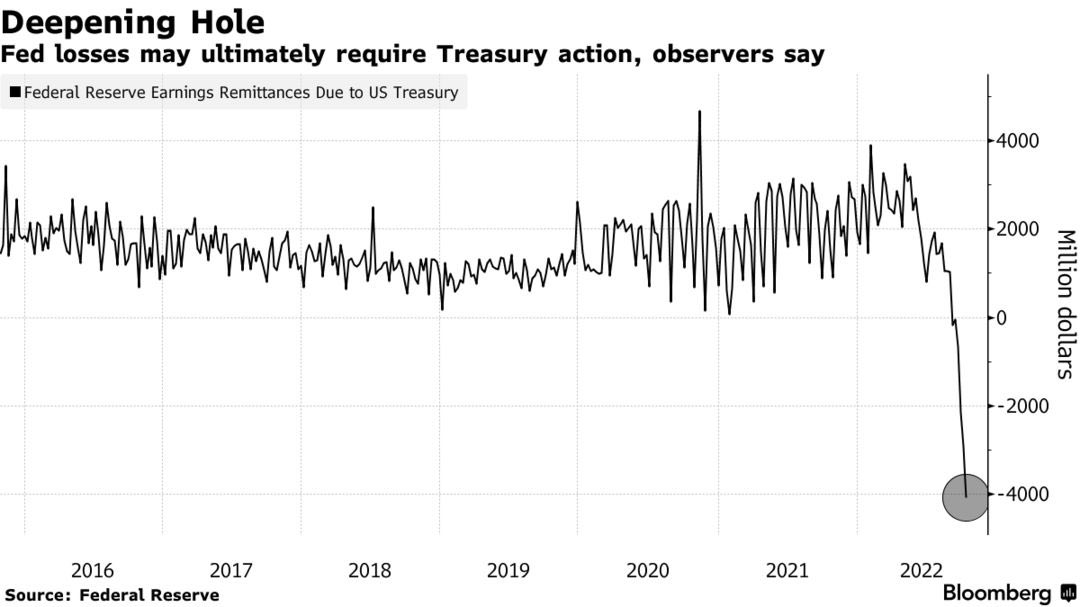While the U.S. Federal Reserve ramped up the benchmark bank rate with a barrage of rate hikes, U.S. Treasury markets and global bond markets, in general, have seen one of the worst selloffs in over a decade. The Fed’s actions has fueled criticism toward the U.S. central bank as some strategists believe the onslaught of interest rate hikes could spur illiquidity in the world’s largest bond market. Moreover, a report published on Tuesday, explains that the Fed and foreign central banks worldwide are “losing billions” by paying more interest.
The Fed Is Losing Billions
The U.S. Federal Reserve has increased the federal funds rate (FFR) on a number of occasions this year and three times in a row, the central bank raised the rate by 75 basis points (bps). The rate hikes have caused politicians and the investment bank Barclays to question the central bank’s need to slow down the rate hikes. Even the United Nations Conference on Trade and Development (UNCTAD) chimed in and urged the Fed to slow down and increase public spending.

Despite the requests, observers working closely with Fed members and markets suspect another 75bps rate hike is guaranteed to happen next month. On Tuesday, Bloomberg reported that, as of right now, the U.S. central bank is “losing billions.” Bloomberg contributor Jonnelle Marte says “without the income from the Fed, the Treasury then needs to sell more debt to the public to fund government spending.” Despite, the need to sell more debt the chief global economist for Morgan Stanley and former member of the U.S. Treasury, Seth Carpenter, insists the losses have no material effect on near-term monetary decisions.
Carpenter further stressed:
The losses don’t have a material effect on their ability to conduct monetary policy in the near term.
Reporter Says ‘Other Central Banks Are Also Dealing With Losses as Rates Go up’
The Bloomberg reporter Marte tweeted that the “higher rates mean the central bank is now paying more interest on reserves than it collects from its portfolio.” Marte added that this situation could lead to “some political headaches.” “I won’t break out the accounting lingo, but the short version is that the Fed used to send its income to the Treasury,” Marte’s Twitter thread added. “Now that the Fed is losing money, the losses are piling up into an IOU that the Fed will pay later with future income.”
The Bloomberg…
Click Here to Read the Full Original Article at Bitcoin News…
























